10 Best Herbal Tinctures For Dry Scalp

Herbal tinctures for dry scalp are concentrated liquid extracts made from various plants known for their soothing and moisturizing properties.
Common ingredients include calendula, chamomile, lavender, and rosemary, which are believed to nourish the scalp and reduce irritation. These tinctures can be applied directly to the scalp to hydrate and calm dry, flaky skin. They are often preferred over traditional shampoos because they are natural and less likely to cause chemical irritation.
Regular use of herbal tinctures may help improve scalp health and promote a more balanced, healthy appearance.
Table of Contents
- 1. Stinging nettle (Urtica dioica)
- 2. St. john's wort (Hypericum perforatum)
- 3. Melaleuca (Melaleuca alternifolia)
- 4. Field horsetail (Equisetum arvense)
- 5. Rosemary (Rosmarinus officinalis)
- 6. Salvia (Salvia officinalis)
- 7. Aloe vera (Aloe barbadensis)
- 8. Camellia (Camellia sinensis)
- 9. Lemon grass (Cymbopogon citratus)
- 10. Ginger (Zingiber officinale)
1. Stinging nettle (Urtica dioica)

Urtica dioica, commonly known as stinging nettle, is a potent herb used in tincture form to address various scalp issues, including dryness and flakiness.
When prepared as a tincture, Urtica dioica is typically diluted in alcohol, allowing for the extraction of its beneficial compounds such as silica, iron, and antioxidants. This herbal tincture can help nourish the scalp by promoting healthy hair growth and improving overall scalp hydration. Its anti-inflammatory and astringent properties may also reduce irritation and dandruff associated with dry scalp conditions.
Regular application of Urtica dioica tincture, either directly to the scalp or as part of a hair rinse, can offer a natural and effective solution for maintaining a balanced and healthy scalp environment.
2. St. john's wort (Hypericum perforatum)

Hypericum perforatum, commonly known as St. John's Wort, is a herbal plant often used in tincture form to address various skin and scalp conditions.
When applied topically as a tincture, it may help soothe dry scalp by reducing inflammation and promoting skin healing. The active compounds in Hypericum perforatum, such as hypericin and flavonoids, are believed to have antimicrobial and anti-inflammatory properties that can benefit irritated or dry skin. However, it is important to note that some individuals may experience skin irritation or allergic reactions when using this tincture.
As with any herbal treatment, it is advisable to consult a healthcare professional before use, especially if you are taking other medications or have a history of skin sensitivities.
3. Melaleuca (Melaleuca alternifolia)
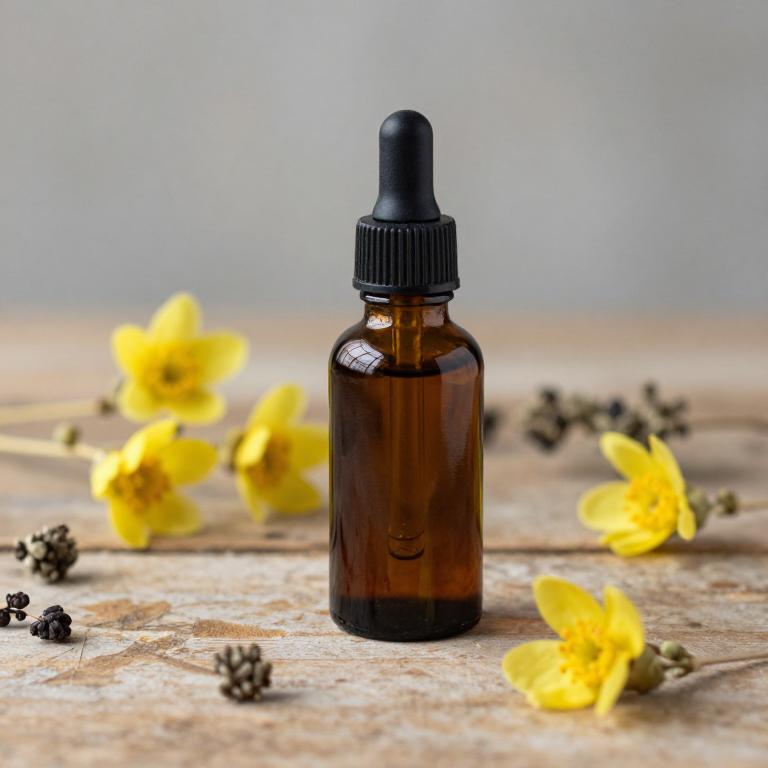
Melaleuca alternifolia, commonly known as tea tree oil, is a potent natural ingredient often used in herbal tinctures for its antimicrobial and anti-inflammatory properties.
When formulated into a tincture, it can be effectively applied to the scalp to help alleviate symptoms of dryness, itchiness, and irritation. The tincture works by reducing fungal and bacterial growth that may contribute to scalp conditions, while also soothing the skin and promoting healing. Its essential oil form is typically diluted with a carrier oil to ensure safe application and prevent skin irritation.
Regular use of melaleuca alternifolia tinctures may help improve overall scalp health and provide relief for those suffering from chronic dry scalp issues.
4. Field horsetail (Equisetum arvense)
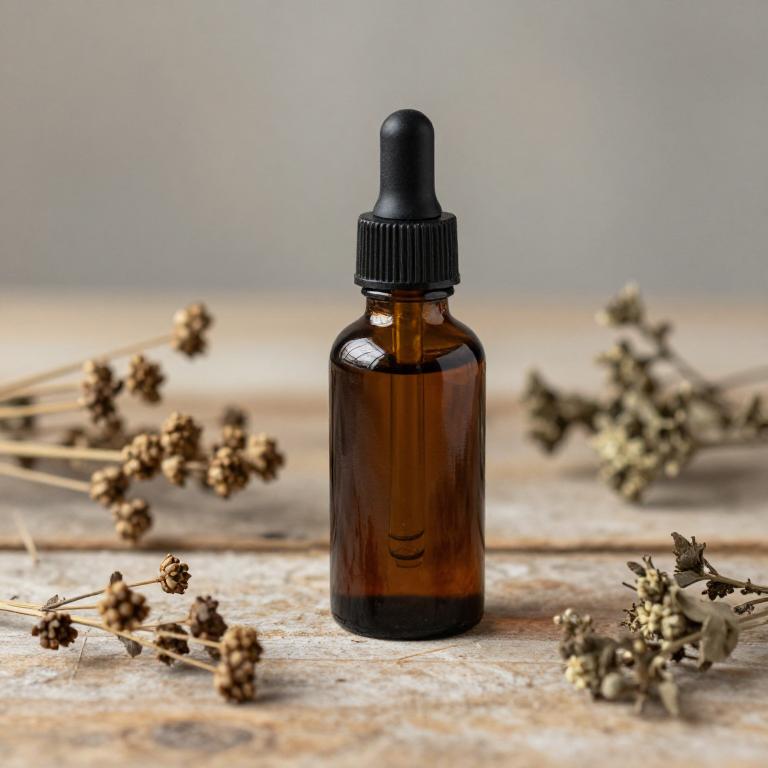
Equisetum arvense, also known as horsetail, is a herb rich in silica and other minerals that can support scalp health.
Herbal tinctures made from Equisetum arvense are often used to address dry scalp due to their astringent and strengthening properties. These tinctures may help reduce dandruff and promote a healthier scalp environment by enhancing moisture retention. When used topically, they can soothe irritation and improve the overall texture of the scalp.
However, it is advisable to consult a healthcare professional before using any herbal tinctures to ensure they are safe and appropriate for individual needs.
5. Rosemary (Rosmarinus officinalis)

Rosmarinus officinalis, commonly known as rosemary, is a popular herb used in tinctures for its potent therapeutic properties.
Rosemary tinctures are often recommended for dry scalp due to their ability to stimulate blood circulation and promote hair growth. The essential oils in rosemary, such as cineole and camphor, have antimicrobial and anti-inflammatory effects that can help reduce dandruff and soothe irritation. When applied topically, these tinctures can moisturize the scalp and improve overall scalp health.
Regular use of rosemary tinctures may lead to a noticeable improvement in scalp condition and hair vitality.
6. Salvia (Salvia officinalis)

Salvia officinalis, commonly known as sage, is often used in herbal tinctures to address issues like dry scalp due to its anti-inflammatory and antimicrobial properties.
These tinctures typically contain a concentrated form of sage extract, which can help soothe irritation and reduce dandruff by balancing the scalp's natural oils. When applied topically, sage tinctures may promote a healthier scalp environment by reducing excess sebum production and improving circulation. However, it is important to dilute the tincture with a carrier oil or water to avoid skin irritation, as undiluted sage can be too potent.
Overall, sage tinctures offer a natural alternative for those seeking relief from dry scalp symptoms without the use of harsh chemical treatments.
7. Aloe vera (Aloe barbadensis)
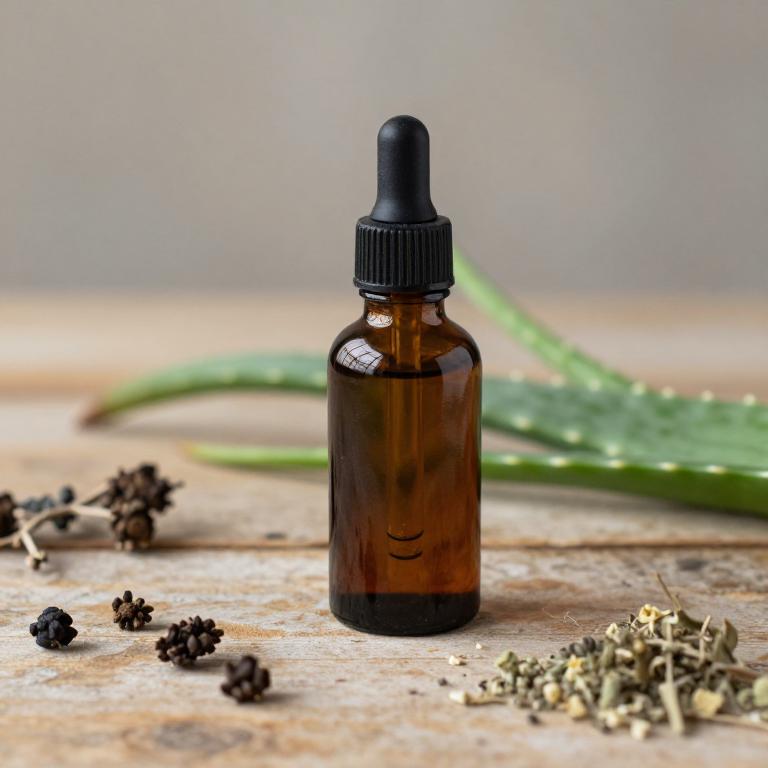
Aloe barbadensis, commonly known as aloe vera, is widely used in herbal tinctures for its soothing and healing properties, making it a popular choice for treating dry scalp.
These tinctures are typically made by extracting the gel from the aloe plant and combining it with alcohol or other natural solvents to preserve its active compounds. The anti-inflammatory and moisturizing effects of aloe vera can help reduce irritation, redness, and flaking associated with a dry scalp. Regular use of aloe-based tinctures may promote scalp health by improving circulation and encouraging the growth of healthy skin cells.
However, it is advisable to perform a patch test before applying it to the scalp to ensure there is no allergic reaction.
8. Camellia (Camellia sinensis)
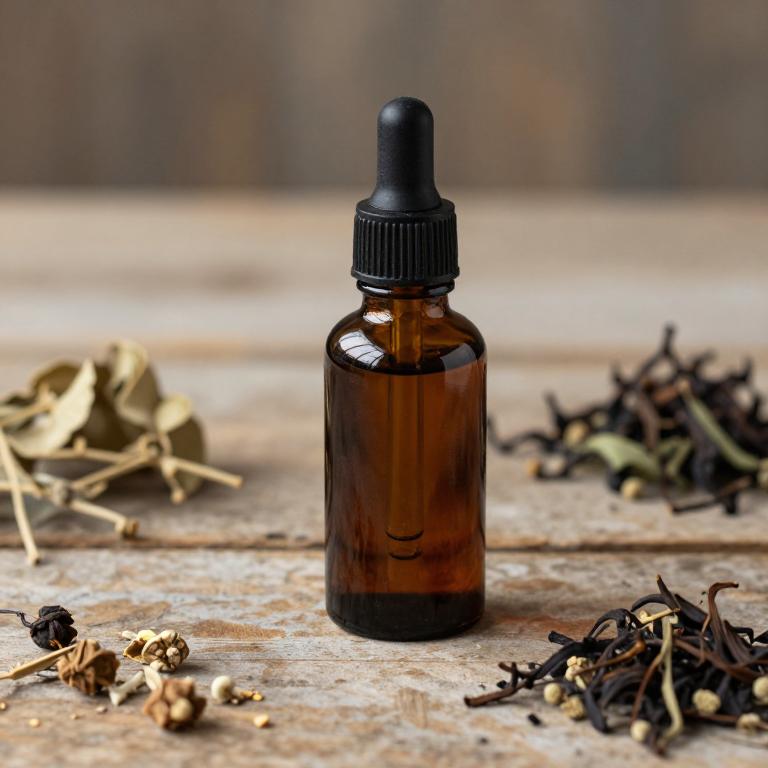
Camellia sinensis herbal tinctures, derived from the leaves of the tea plant, are increasingly being used to address dry scalp issues due to their soothing and nourishing properties.
These tinctures contain compounds like catechins and antioxidants that help reduce inflammation and promote scalp health. When applied topically, they can moisturize the scalp, alleviate itching, and improve overall scalp texture. Many users find that regular use of Camellia sinensis tinctures helps maintain a balanced scalp environment.
However, it is advisable to perform a patch test and consult with a healthcare professional before incorporating them into a skincare routine.
9. Lemon grass (Cymbopogon citratus)
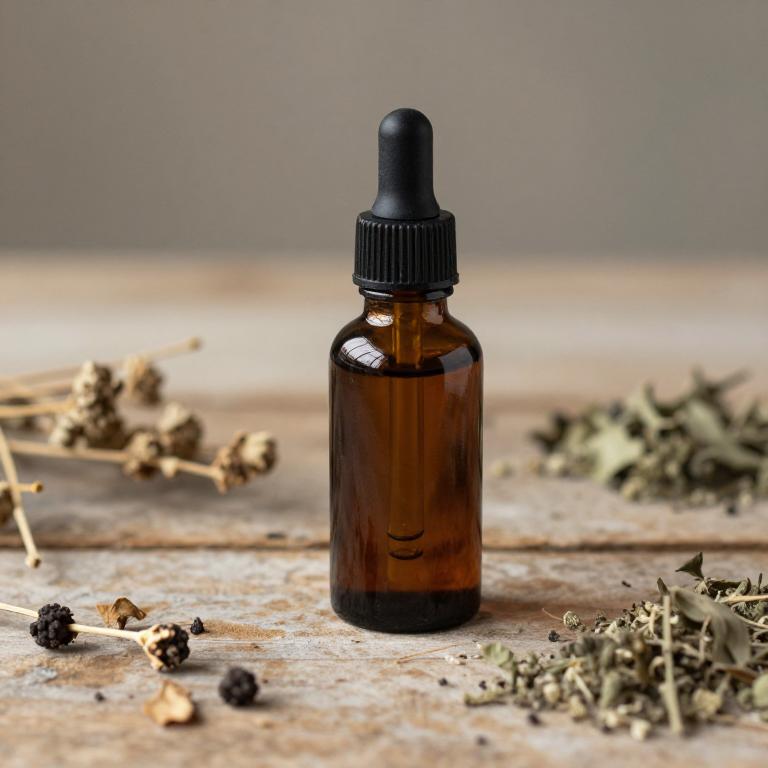
Cymbopogon citratus, commonly known as lemon grass, is a popular herbal plant used in natural remedies for its soothing and anti-inflammatory properties.
When prepared as a tincture, it can be applied topically to the scalp to alleviate dryness, itchiness, and irritation associated with dry scalp conditions. The essential oils in lemon grass, such as citral and myrcene, have antimicrobial and antifungal effects that help combat scalp infections that may contribute to dryness. Its mild, refreshing scent also provides a calming effect, making it a pleasant addition to scalp care routines.
Regular use of Cymbopogon citratus tinctures can promote a healthier scalp environment and support overall hair and skin wellness.
10. Ginger (Zingiber officinale)

Zingiber officinale, commonly known as ginger, has been traditionally used for its anti-inflammatory and antioxidant properties, making it a valuable ingredient in herbal tinctures for dry scalp treatment.
These tinctures are typically prepared by soaking grated ginger in alcohol or glycerin to extract its active compounds, such as gingerol and shogaol, which help soothe irritation and promote scalp health. When applied topically, ginger tinctures can increase blood circulation to the scalp, potentially reducing dryness and flakiness. They are often used as a natural alternative to commercial shampoos and conditioners, offering a gentle yet effective solution for those with sensitive or dry skin.
However, it is important to perform a patch test before use and consult with a healthcare provider, especially for individuals with known allergies or medical conditions.